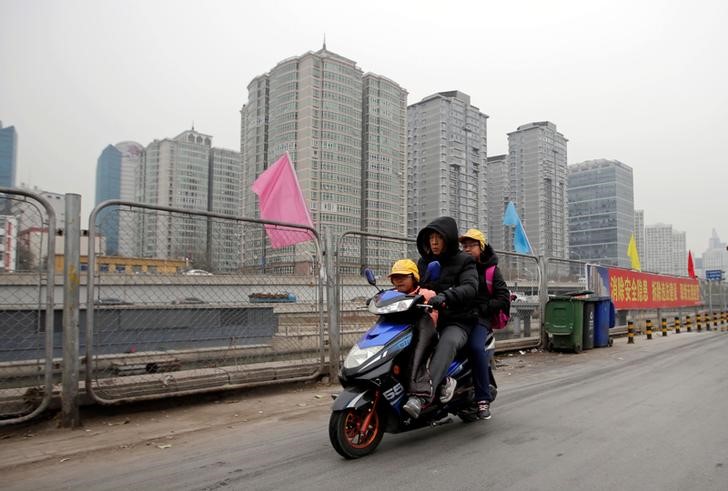BEIJING (Reuters) - China might further relax, or even scrap, restrictions on childbirth to avoid a "low birthrate trap", an influential government think-tank has said, as the country debates how to avert a demographic timebomb.
China's birth rate, one of the world's lowest, is fast becoming a worry for authorities, rather than the achievement it was considered at a time when the government feared over-population.
Beijing formally allowed all couples to have two children in October last year after decades of enforcing a strict one-child policy for the vast majority of the population.
But the two-child policy is not the "end point" for adjustments to regulations on childbirth, the Chinese Academy of Social Sciences (CASS) said in a report.
"As lifestyles change, people marry and give birth later, and the willingness to give birth increasingly drops," the top think-tank said in its yearly Green Book on population and labour released on Wednesday.
"In order to avoid falling into a 'low birth rate trap', our nation may in the future be required to further loosen its restrictions on giving birth, or even abolish them," it added.
The government's easing of family planning restrictions, which originally began in 2013, aims to alleviate demographic strains on the economy, such as a rapidly ageing population and a shrinking workforce.
Despite allowing all couples to have two children, officials maintain curbs are necessary, because of the pressure China's large population exerts on resources and the environment.
In March, asked to predict when China might end restrictions on childbirth, Li Bin, head of the National Health and Family Planning Commision, replied, "There is no timeline".
Adjusting the controversial policy, first introduced in the late 1970s to limit population growth, may help boost consumption and slow society's ageing, but it has also brought new obstacles.
Many of the 90 million families eligible for a second child are lukewarm to the prospect, especially young couples living in big cities who face a heavy economic burden.

Following the changes, hundreds of parents who lost an only child, often seen as the primary means of support in old age, protested in Beijing in April to demand more compensation from the government.